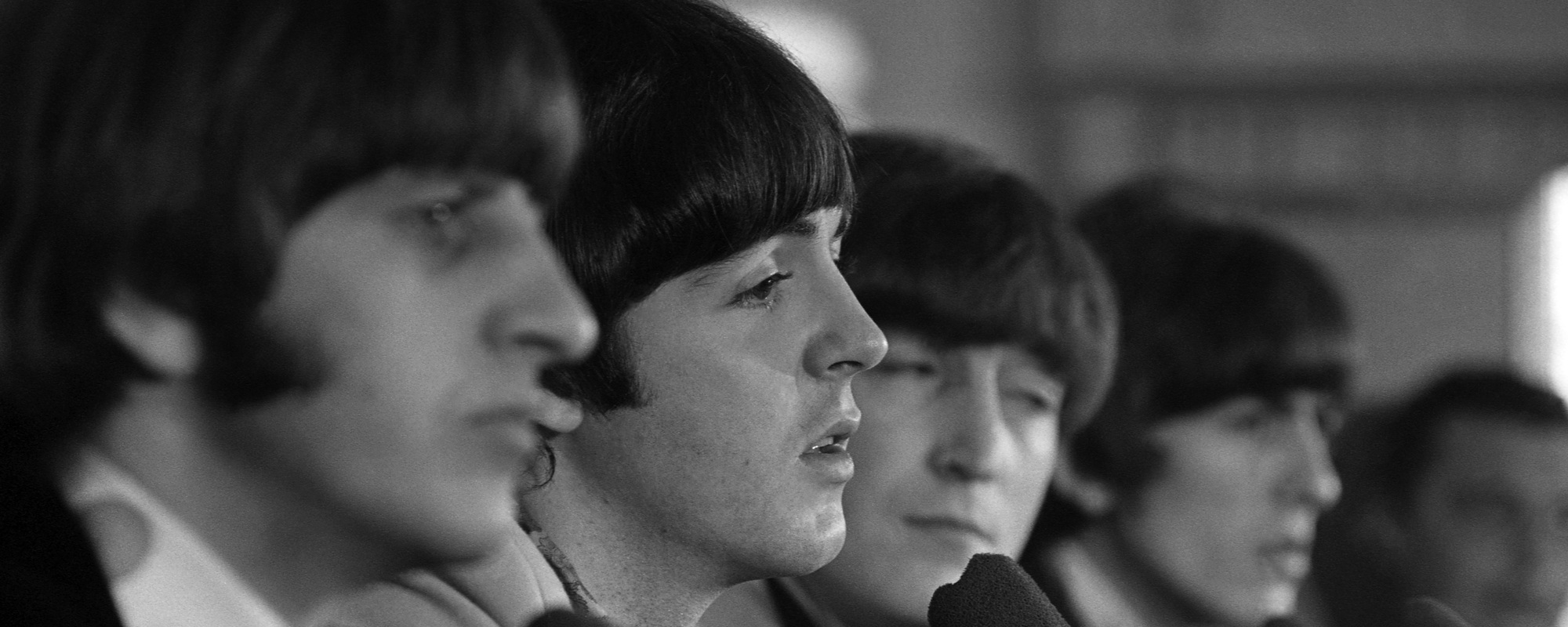“All Apologies” was the final Nirvana single before Kurt Cobain’s death by suicide in 1994.
Videos by American Songwriter
Nirvana released the song as a double A-side with “Rape Me.” And it’s tempting to impart some sort of historical poetry to those two titles.
However prescient “All Apologies” now seems, it also represented a possible future for Cobain. He admired bands like R.E.M. and wanted to explore different kinds of songwriting. Cobain told Rolling Stone in 1994, “I know we’re gonna put out one more record, at least, and I have a pretty good idea what it’s going to sound like: pretty ethereal, acoustic, like R.E.M.’s last album.”
He went on to call them “the greatest.” But he’d written “pretty” songs too. You can hear the jangly guitar sounds of Peter Buck on “About a Girl” from Nirvana’s 1989 debut Bleach. Yes, Nirvana was a loud band, but it shouldn’t be surprising how easily their well-crafted songs translated in their iconic MTV Unplugged performance.
Blame Me
Over a soft guitar and cycling riff, Cobain seems overwhelmed by regret. What else can he say?
What else should I be?
All apologies
What else could I say?
Everyone is gay
Things would be easier if he could let go. Relax. But many things weighed on Cobain: fame, addiction, physical and mental anguish, personal chaos.
I wish I was like you
Easily amused
Find my nest of salt
Everything is my fault
Steve Albini and a Displeased Record Label
When it came time to follow up Nirvana’s colossal Nevermind, Cobain chose Steve Albini to record the band. He refused to make another album as polished as Butch Vig’s production on Nevermind.
Albini’s ethos was to capture the artist as raw as possible. When they finished In Utero, Nirvana’s record label DGC (David Geffen Company) pressured them to remix it. Both Nirvana’s management and Geffen had been against the idea of working with Albini in the first place. Though Cobain, bassist Krist Novoselic, and drummer Dave Grohl defended the work, cracks began to appear.
The label’s response: “It sounds like crap, there’s way too much effect on the drums, you can’t hear the vocals.” That’s how Cobain described it to Albini.
Meanwhile, journalist Greg Kot contacted Albini and said, “Geffen’s publicity department had gotten in touch with him and off the record had told him that the new Nirvana record was awful and that it was [Albini’s] fault.”
By the time Kot’s article appeared in the Chicago Tribune, private conversations about the quality of the recording were now public. Eventually, the band relented and agreed to remix two songs with R.E.M.’s producer Scott Litt.
Remixed versions of “All Apologies” and “Heart-Shaped Box” became the album’s singles. Litt also remixed “Pennyroyal Tea” but Geffen canceled the single’s release following Cobain’s death.
In the sun
In the sun, I feel as one
Universal Mother
Sinéad O’Connor covered “All Apologies” on her fourth album Universal Mother. It arrived only a year after In Utero, and barely five months after Cobain’s death.
Only an acoustic guitar accompanies O’Connor’s voice. It’s delicate, reserved. Perhaps a glimpse of what it sounded like when Cobain first wrote the melody—alone in a room.
Two tortured artists with giant voices found solidarity in the revealing song. The resignation you hear in the words feels like what’s left after a battering storm. O’Connor and Cobain weathered such storms and “All Apologies” connects their shared pain.
All in all is all we are.
Albini’s Reaction
Once the In Utero remix was completed, the label used the mastering process to further smooth the edges of Albini’s engineering. He explained to Mojo how he received the final version.
“For my own personal satisfaction, because I worked on that record and felt close to it,” Albini said, “I felt like it sounded better before any tinkering was done.”
No one knows if the original version of In Utero would or wouldn’t have been a success. Nirvana was the biggest band on the planet in 1993, which only increased the mounting pressure on Cobain.
Yet, even with its imperfections buffed, it does sound raw compared to Vig’s slick and double-tracked treatment of Nevermind.
Something in the Way
Cobain’s final single offers a list of regrets. He wanted to make a noisy record with Albini. And he did. But the beauty and heartbreak of “All Apologies” remains striking.
The lyrics are sparse and repetitive. They also say so much more than he could have imagined.
Then he was gone.
Photo by Raffaella Cavalieri/Redferns












Leave a Reply
Only members can comment. Become a member. Already a member? Log in.